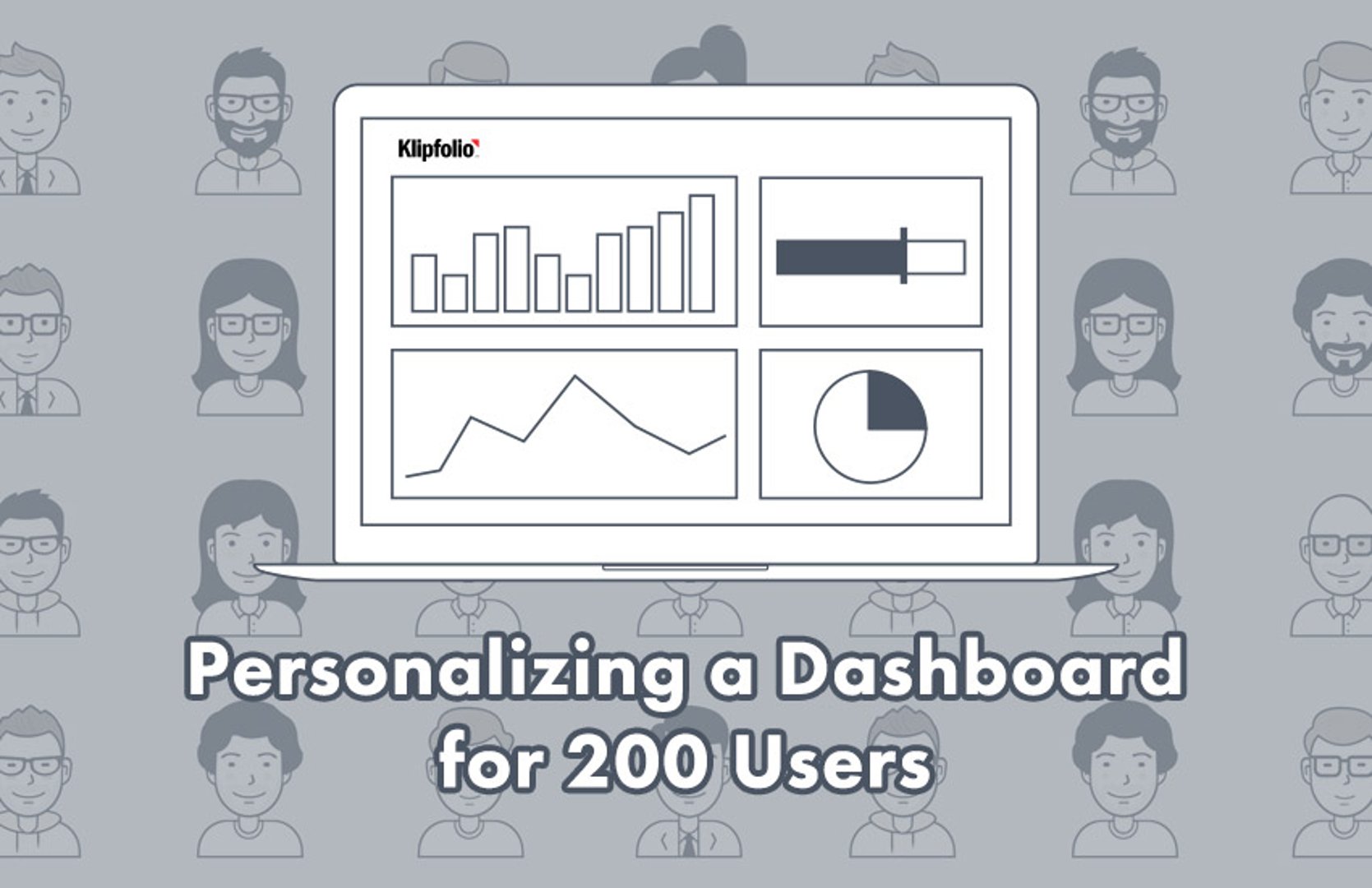Data-Driven Agency Series, Chapter 3: The power of agency reporting

Published 2025-12-10
Summary - Dashboard reporting offers more value than your competition. It's innovative, it saves time, and it helps your clients make better business decisions.
Dashboard reporting is a distinct way to offer more value than your competition
What is dashboard reporting?
Traditional reports are one-off documents compiled after analysis. Dashboard reporting gives clients live access to the same core facts you track every day. It saves time, reduces manual effort, and when you master it, clients see dependable, timely guidance.
For example, take agency partner RootedElm, who worked closely with A&W Restaurants.
A&W: A data-driven 100th birthday
Partners prove that success can be driven by data and clear reporting processes. With Klipfolio Klips, RootedElm supported A&W’s marketing efforts, acting as a trusted advisor on projects such as their MugClub email marketing campaign.
Using data modelled into dashboards and delivered through dashboard reports, A&W expanded subscriber reach and enhanced engagement as they headed toward celebrating their 100th birthday.
Three ways dashboard reporting adds value to a digital marketing agency
- Lead generation: win new customers by standing out
- Organization: reclaim hours and increase team performance
- Transparency: use open communication to build trust
Win new customers by standing out
Reporting in real time gives clients access to their data every day of the month, so they are involved every step of the way. No surprises at month end. That constant understanding builds confidence on both sides.
A practical move many agencies still skip is adopting reporting practices that put clients in the driver’s seat. Clients can react in real time and make smarter decisions backed by current data.
Another RootedElm client, Elise from Lexington Podiatry, changed how the team works because of this shift.
“[Dashboard reporting] helps me know when it's time to worry or when things are running smoothly with just a quick glance. Decision making on the fly has never been easier.”
This is how you stand out. This is how you help clients grow revenue.
But is the client acquisition process effective in the first place?
Lead Generation dashboard
Many agencies have no formal process for managing client acquisition or reading the signals in their data.
Build a lead generation dashboard to track and report on onboarding. You’ll see which tactics work and where to adjust. Consider these metrics on your lead generation dashboard:
- Page views
- Average time on site
- Session duration
- Goal conversions
- Bounce rate
- Conversion rate
- Page performance
Great, dashboards help differentiate the agency and track leads… how do you get the team on board?
Reclaim hours in your day
With data at your fingertips, you can take action quickly. The team gets more organized and more productive.
With better internal transparency and shared context, your team spots trends as they happen and acts sooner. Campaigns and creative work can be improved in real time. Your approach shifts from reactive to proactive.
This is where a marketing performance dashboard fits.
Marketing Performance dashboard
Agencies often place clients front and centre and lose sight of their own objectives. Track your own performance to protect capacity and output across marketing activities. Start with:
- Lead conversion
- Blog subscribers
- Campaign performance
- Web traffic targets
- Return on investment (ROI)
- Sales closing ratio
- Social media engagement
Content strategist Andy Crestodina helped prototype this marketing performance dashboard. Agencies use it to see which content attracts and converts, and where new opportunities sit.
Strong performance needs solid project management
As an agency, you juggle many clients and deliverables. There’s a difference between reporting and monitoring. Business dashboards let teams access a client’s key data in a click or two.
No more sifting through spreadsheets or random screenshots parked in shared drives.
Dashboards replace those spreadsheets and let you combine data sets any way you need. That helps project management at the team and organization level. Everyone gets a clear picture of the project and its moving parts.
Project Management dashboard
Growing agencies manage dozens of projects across multiple clients. Keeping that straight is hard.
A project management dashboard consolidates the process into a single dashboard and lets you associate targets with deliverables.
Track these metrics for each project on your dashboard:
Create multiple dashboards if that helps. For example, one for marketing project management and one for business project management.
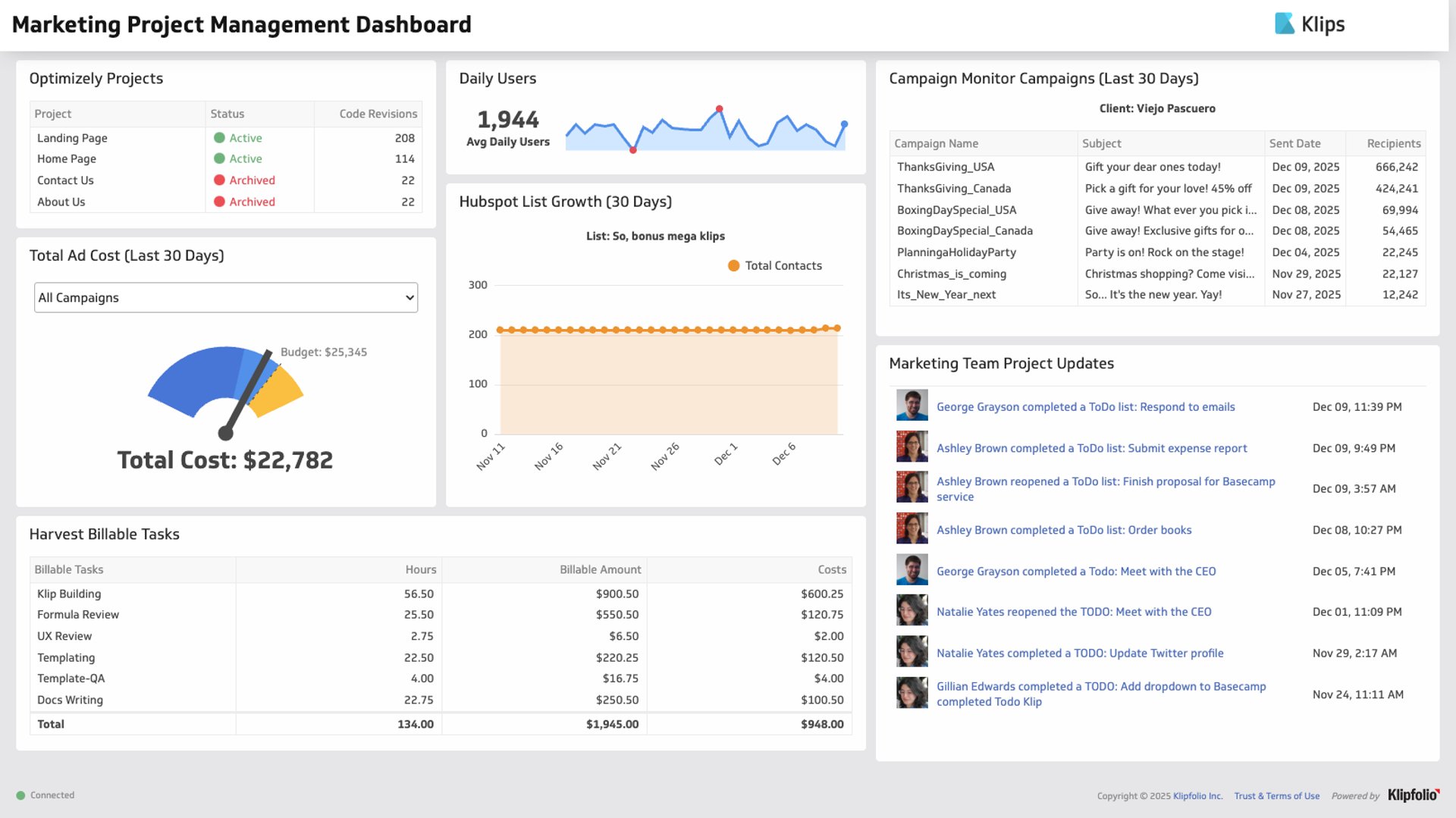
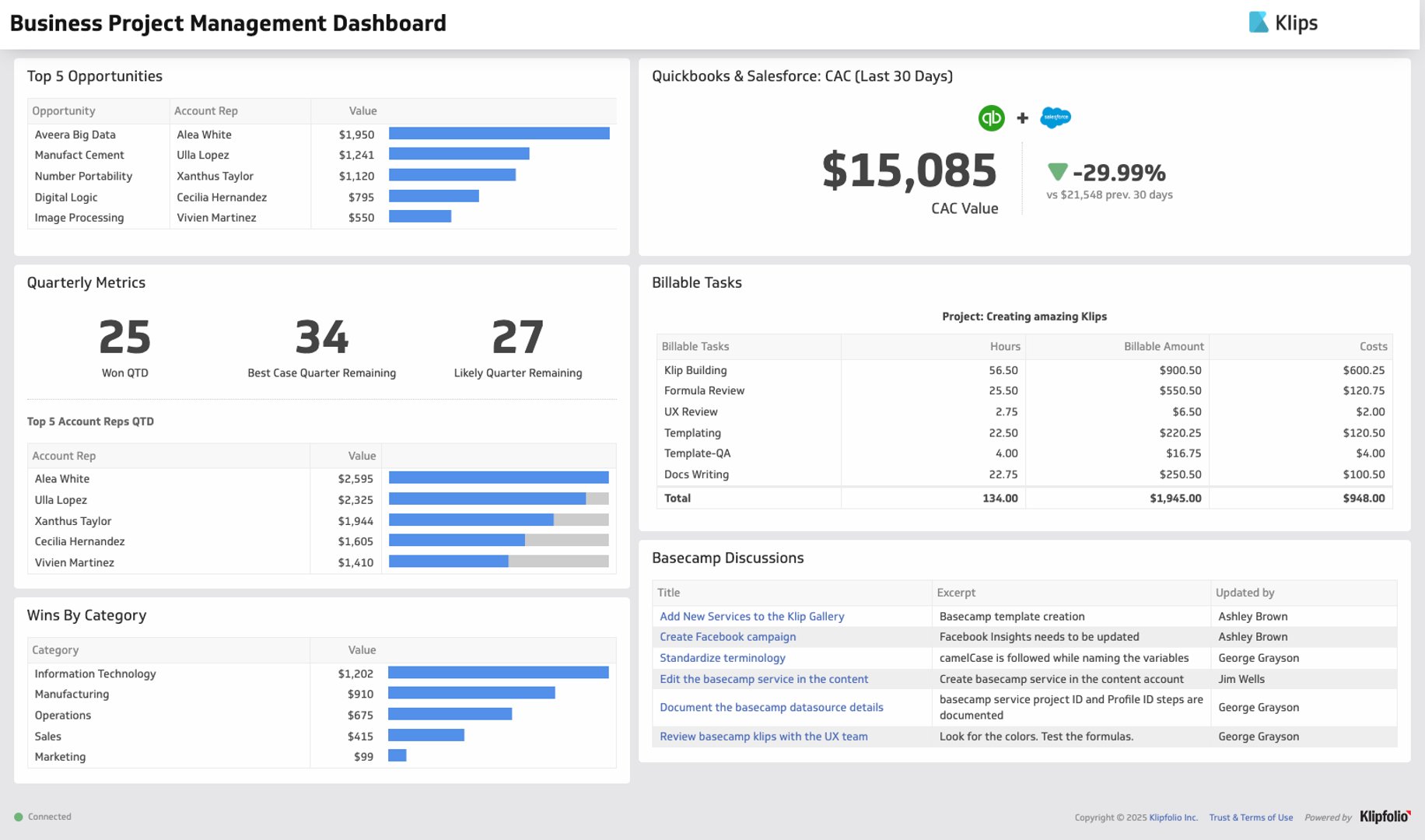
Okay, you can monitor your team’s performance. Can you do the same for client performance?
Absolutely.
Use open communication to build a culture of trust
Clients want to see and interact with their data in real time, not just hear about it.
Data transparency builds trust, which strengthens the team. A stronger team delivers better service and creates loyal customers.
Financial Management dashboard
Beyond marketing performance, agencies need to manage billing and account health. Juggling multiple clients and account types requires systems and process. A financial management dashboard gives the team shared visibility.
Focus your financial management dashboard on:
- Profit and Loss report
- Income
- Current accounts receivable and accounts payable
- Past-due invoices
- Total advertising costs
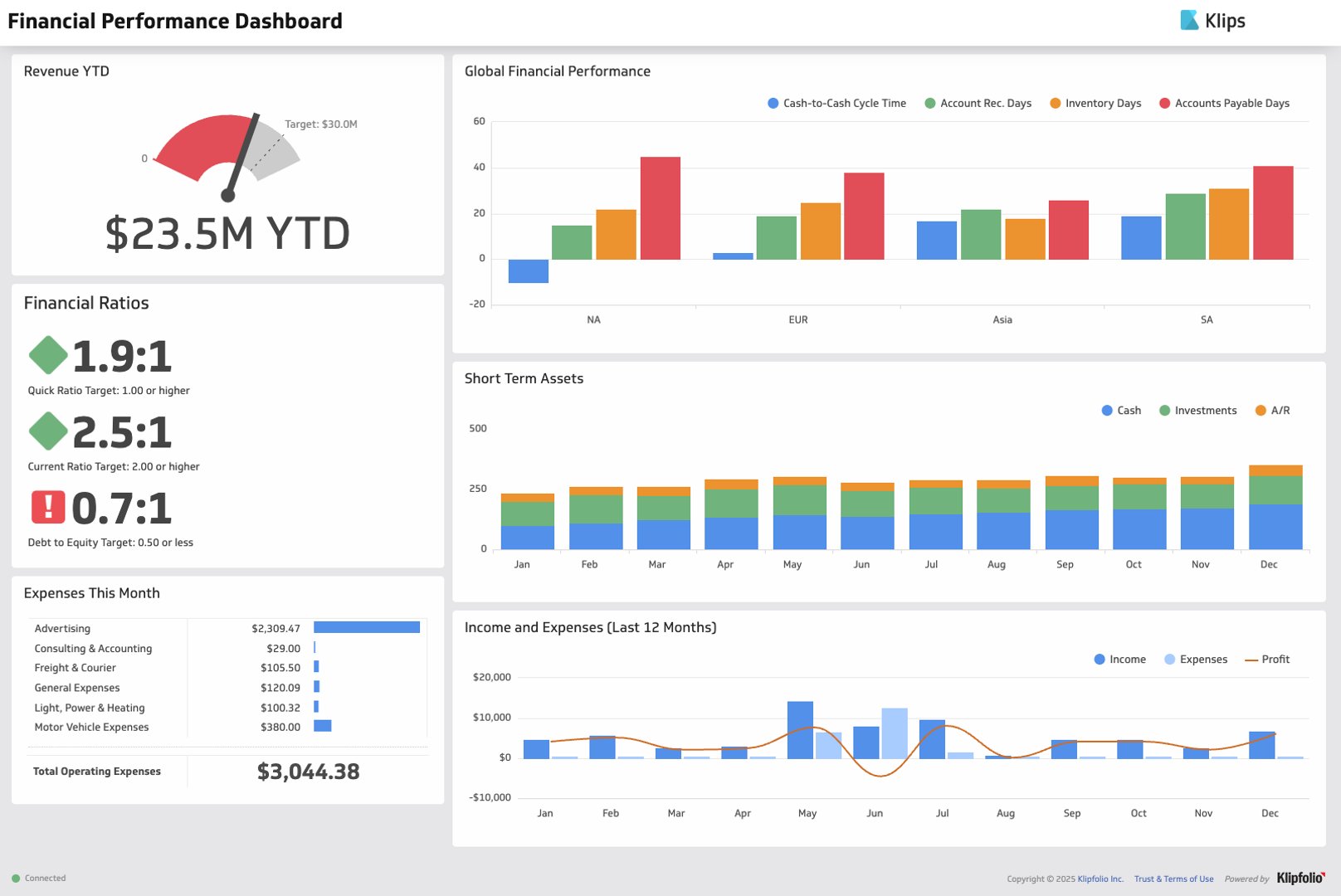
Transparency grows from clear, open communication
One of the most overlooked benefits of dashboards for agencies is better communication.
With concise data visualizations, managers get a clear picture of client performance, which makes delegating easier. Transparency also improves across the organization because each person understands what others are doing.
For example, a leader focused on SEO can glance at a dashboard and understand what data is coming from a CRM without asking a CRM specialist to export it.
Client Alerts dashboard
A Client Alerts dashboard helps you monitor client performance in real time. Get creative here. Agencies run TV dashboards for social channels and add client growth metrics.
Metrics to showcase on client-facing dashboards:
- Social mentions (X)
- Social media followers
- Google News alerts
- Brand awareness or client testimonials
- Net Promoter Score (NPS)
Social Media Command Centre
Easy to set up with a pre-built connection and simple to use, a Social Command Centre keeps each client front and centre.
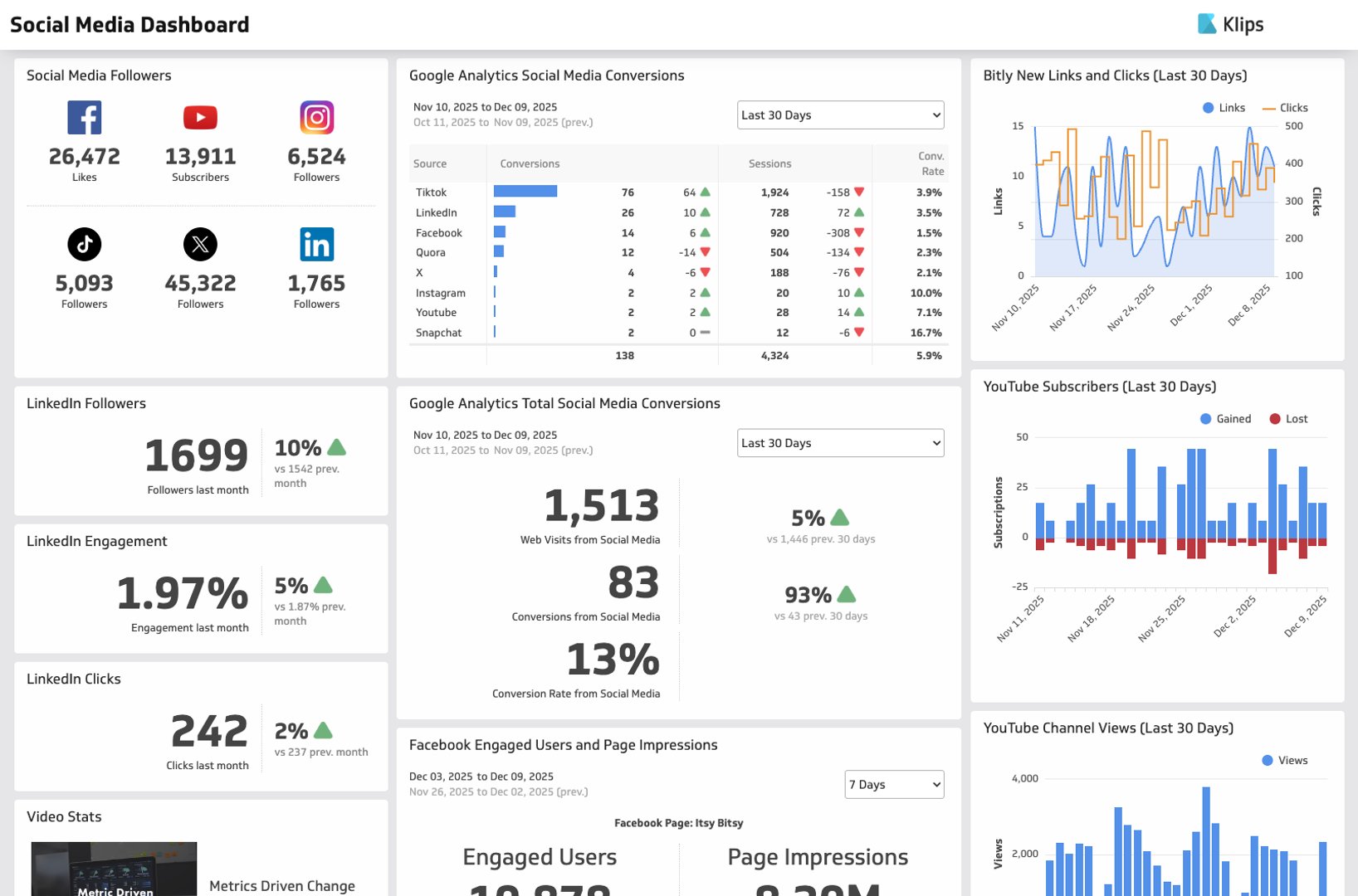
Next up
Related Articles

Klipfolio Partner How-To #1: Duplicating dashboards across client accounts
By Stef Reid — November 27th, 2025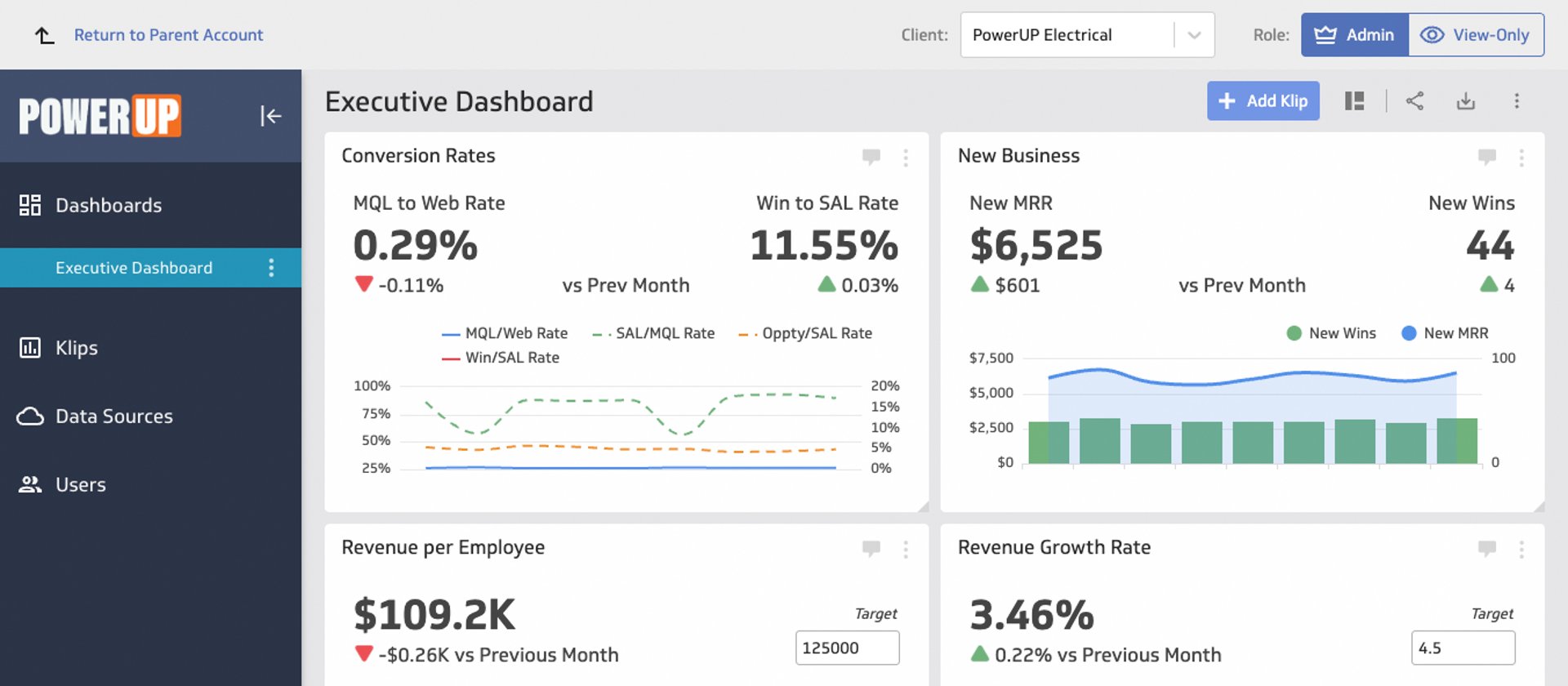
Client management in 5 steps
By Jonathan Taylor — November 26th, 2025
Klipfolio Partner How-To #2: Company Properties can simplify client set-up
By Stef Reid — November 26th, 2025